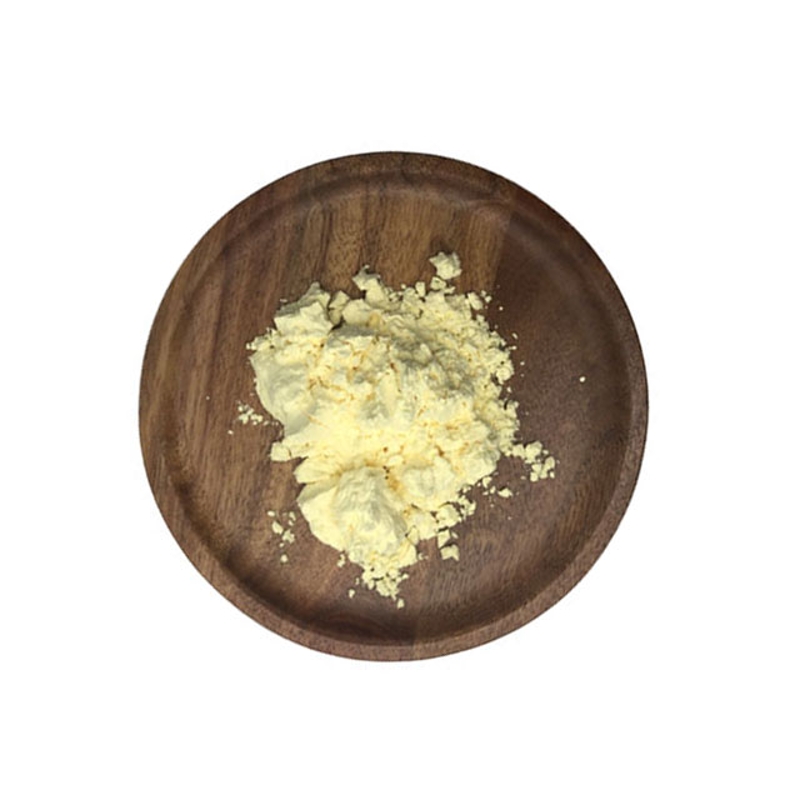New Phytol. The Chinese Agricultural University, in collaboration with the French Academy of Agricultural Sciences, has revealed a new mechanism for root knot nematodes to inhibit plant immune response.
-
Last Update: 2020-07-21
-
Source: Internet
-
Author: User
Search more information of high quality chemicals, good prices and reliable suppliers, visit
www.echemi.com
Recently, Professor Jian Heng of China Agricultural University and Professor Pierre abad of Sophia Institute of agricultural biotechnology, French Academy of Agricultural Sciences, published the "root knot nematode effector mipdi1 targets a stress associated protein, SAP", To establish disease in Solanaceae and Arabidopsis "revealed the molecular mechanism of Meloidogyne incognita inhibiting plant immune response and enhancing its parasitism by secreting effector mipdi1.Meloidogyne spp. is one of the most important pathogenic nematodes that harm crops, causing losses of more than 10 billion US dollars in the world every year.the oesophageal gland of Meloidogyne incognita secretes a large number of effectors, but most of their mechanisms are still unknown.protein disulfide isomerase (PDI) widely exists in human, animal, plant and fungi. It has the functions of redox, isomerase and molecular chaperone. Early studies have found that parasites of human and animal escape host immune response by secreting PDIs.this study found that the effector mipdi1 of Meloidogyne incognita is a typical PDI protein, which contains N-terminal signal peptide and thioredoxin domain for secretion. Immunolocalization showed that mipdi1 was specifically expressed in the subabdominal esophageal gland of M. incognita, and secreted into host cells during parasitism; the parasitism ability of M. incognita was significantly reduced by RNAi interference, while the heterologous plant was not The expression of mipdi1 was more sensitive to root knot nematode infection, which indicated that mipdi1 played a key role in the parasitic process of Meloidogyne incognita. Further studies showed that mipdi1 interacted with tomato stress-related protein (slsap12) and tobacco or Arabidopsis homologous proteins (nbsap12 and atsap12), which were involved in plant abiotic and biological stress Silencing or knockout of sap12 gene in tobacco and Arabidopsis significantly increased the sensitivity of plants to Meloidogyne incognita.this study suggests that mipdi1, as an effector secreted by Meloidogyne incognita during parasitization, can help nematodes parasitize by fine tuning sap12 mediated redox signaling and defense responses in Solanaceae and Arabidopsis.the results provide important data for further understanding the molecular mechanism of Meloidogyne incognita.China Agricultural University is the first unit to complete the paper, Zhao Jianlong, a graduate doctoral student, is the first author of the paper, and Professor Jian Heng of China Agricultural University and Professor Bruno favey of INRA isa are co authors.Associate Professor Liu Qian and Dr. Chen yongpan of China Agricultural University, Prof. Pierre abad and Janice de Almeida Engler of inra-isa, Dr. Micha è l Quentin and Dr. joffrey mejias, researcher Xie Bingyan and Mao Zhenchuan, Institute of vegetable and flower research, Chinese Academy of agricultural Sciences, and sun Qinghua, master of science, also participated in the study.the research was supported by the national key R & D program, the National Natural Science Foundation of China, the 973 program and the national study abroad foundation program.the original link: the forefront of plant science, focusing on the forefront of plant science progress, information, recruitment information release and method software sharing.for submission and recruitment, please reply "contribution" from the background, which is free of charge; for business cooperation, please contact wechat ID: zwkxqy;
This article is an English version of an article which is originally in the Chinese language on echemi.com and is provided for information purposes only.
This website makes no representation or warranty of any kind, either expressed or implied, as to the accuracy, completeness ownership or reliability of
the article or any translations thereof. If you have any concerns or complaints relating to the article, please send an email, providing a detailed
description of the concern or complaint, to
service@echemi.com. A staff member will contact you within 5 working days. Once verified, infringing content
will be removed immediately.







